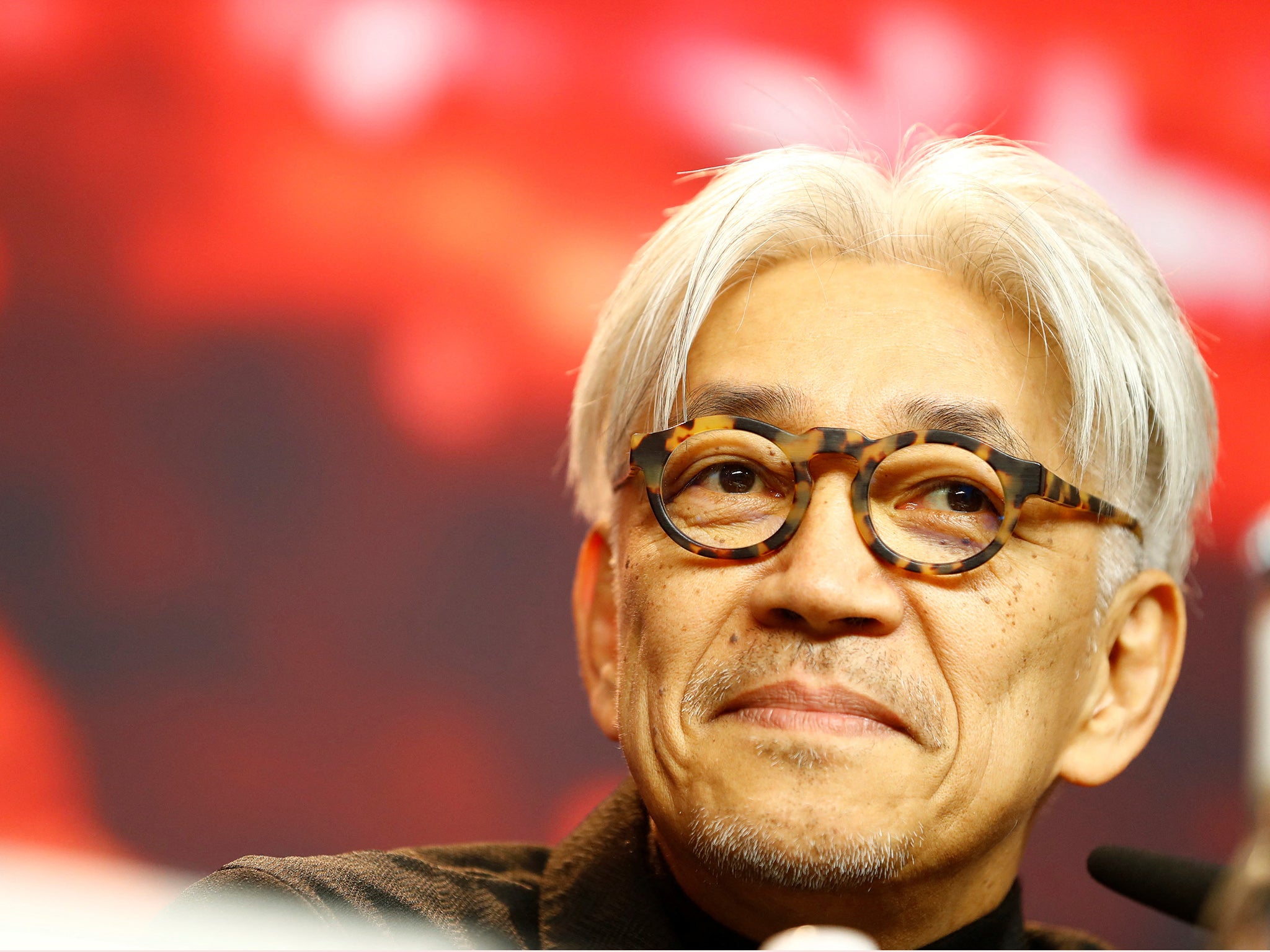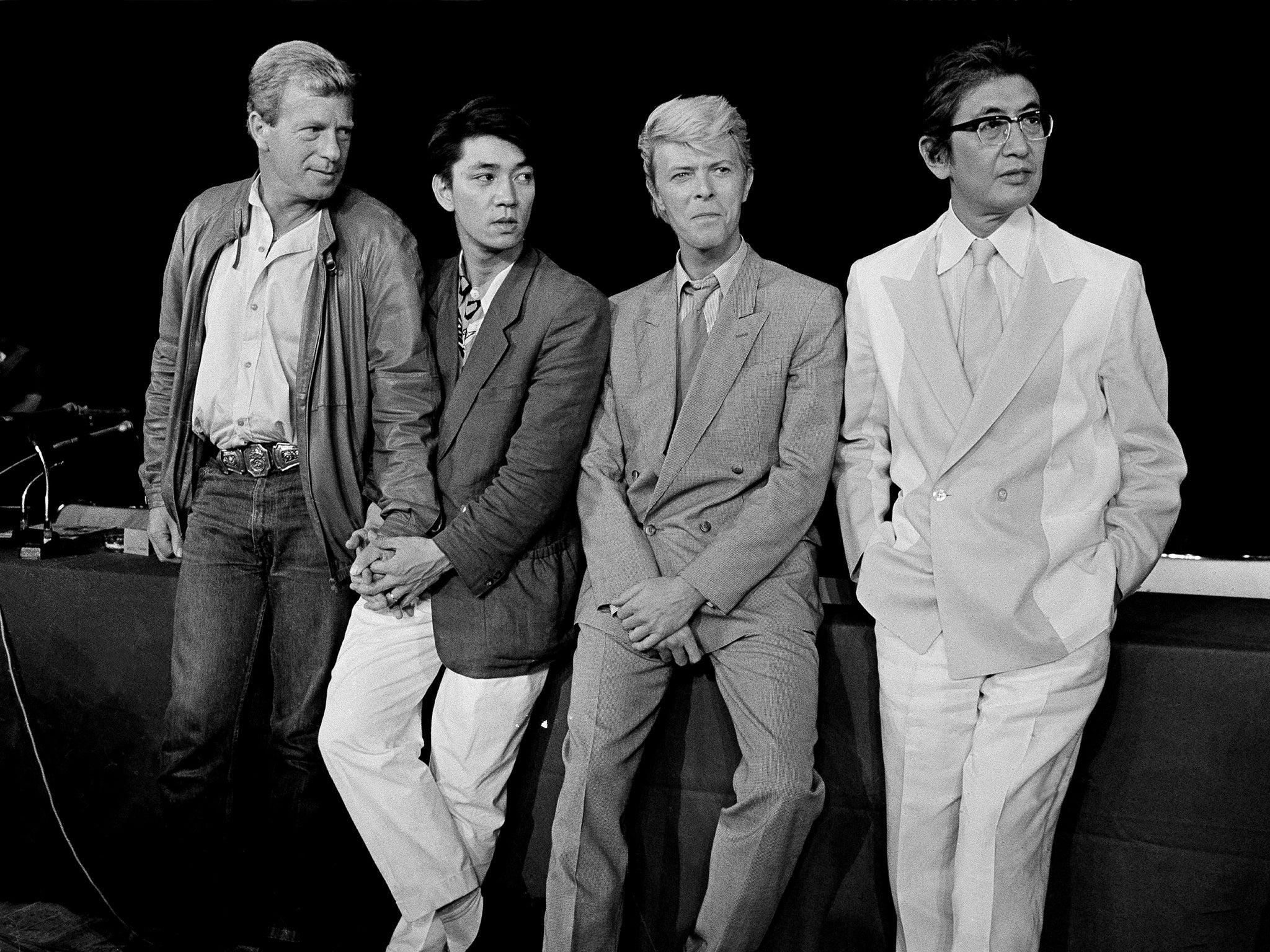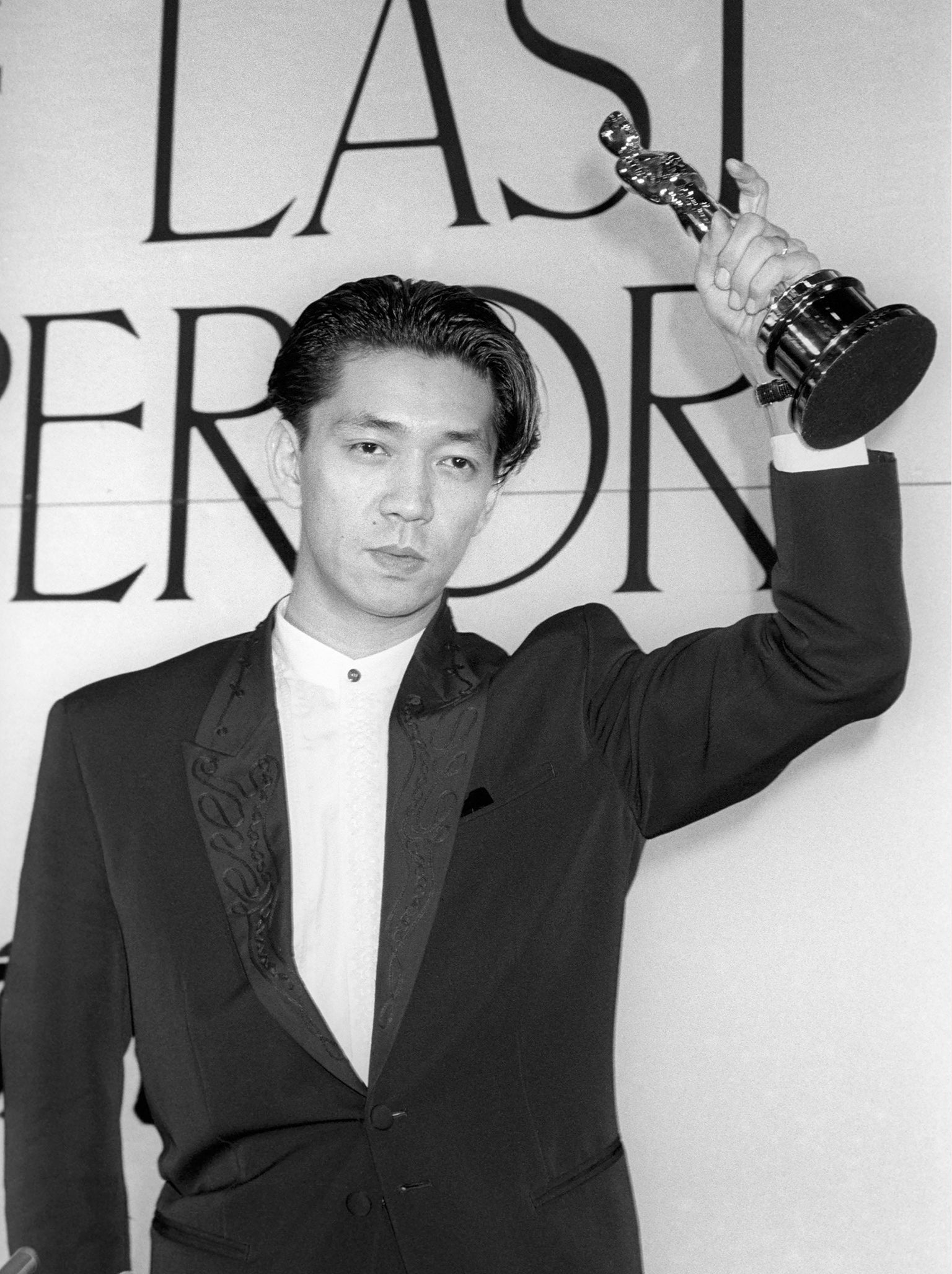Ryuichi Sakamoto: Japan’s master of electronic music
A prolific solo artist and composer who worked with musicians from Bowie to Madonna, Sakamoto refused to stay within the confines of one genre

Your support helps us to tell the story
From reproductive rights to climate change to Big Tech, The Independent is on the ground when the story is developing. Whether it's investigating the financials of Elon Musk's pro-Trump PAC or producing our latest documentary, 'The A Word', which shines a light on the American women fighting for reproductive rights, we know how important it is to parse out the facts from the messaging.
At such a critical moment in US history, we need reporters on the ground. Your donation allows us to keep sending journalists to speak to both sides of the story.
The Independent is trusted by Americans across the entire political spectrum. And unlike many other quality news outlets, we choose not to lock Americans out of our reporting and analysis with paywalls. We believe quality journalism should be available to everyone, paid for by those who can afford it.
Your support makes all the difference.Ryuichi Sakamoto, an eclectic Japanese composer who was an early leader in electronic pop music and became an acclaimed writer of film scores that blended Eastern and Western cultural influences, has died age 71.
Sakamoto founded the Yellow Magic Orchestra in 1978 with Haruomi Hosono and Yukihiro Takahashi, inspired by the German electronica group Kraftwerk, and it soon emerged as Japan’s top-selling band.
Popularly known as YMO, the orchestra perfected a witty robotic pop that attracted legions of teenage fans in Japan and influenced the sound of everything from Nintendo video-game scores to the techno genre and hip-hop.
YMO had dancefloor hits in the US with the funky synth tracks “Firecracker” and “Tighten Up”, which toyed with ancient Eastern musical sounds and new technology. They earned a spot on Soul Train in 1980, where they played “Tighten Up” and their popular song “Computer Game”.
Fans included Duran Duran and producer Todd Rundgren, and their song “Behind the Mask” was covered by Eric Clapton and Michael Jackson. “We were very big,” Sakamoto told The Guardian in 2008. “That’s why I hated it. We were always followed by paparazzi.”
The band broke up in 1983, and Sakamoto became a prolific solo artist, also making forays into acting.
He played a Japanese prison-camp commander opposite another musician, David Bowie, in the Second World War drama “Merry Christmas, Mr Lawrence” (1983). Sakamoto agreed to take the role only if he could score the movie as well, and he composed a stutter-step main theme that combined an Eastern pentatonic scale with French impressionism for a strikingly catchy result.
“I tried to make a Christmas song, because it's a Christmas film,” he explained to The Daily Telegraph in 2017. “But it's also a fantasy story – a meeting of Western and Eastern gods – so I wanted it to sound exotic to both Western and Eastern ears.”
The score, which featured synthesisers – an anachronistic touch given the film’s historical setting – earned Sakamoto a Bafta award for Best Movie Score.

Filmmaker Bernardo Bertolucci hired Sakamoto to co-score his 1987 epic The Last Emperor alongside David Byrne of Talking Heads and the Chinese composer Cong Su. Sakamoto’s main theme was a 70mm-sized melody full of romance and nostalgia.
The composers shared an Academy award and a Grammy award for their soundtrack score. The film, in which Sakamoto played a Japanese officer and ally of the emperor, also collected the Best Picture Oscar.
Sakamoto reunited with Bertolucci on The Sheltering Sky (1990), starring John Malkovich and Debra Winger as a couple travelling in North Africa amid marital ennui, and again on Little Buddha (1993). Madonna cast him as a director in a music video within a music video for her 1993 song “Rain”.
But Sakamoto was far more comfortable behind the screen. He scored approximately 50 feature films, documentaries and television projects – including Wuthering Heights (1992) starring Juliette Binoche and Ralph Fiennes, the 1993 miniseries Wild Palms, produced by Oliver Stone, and Snake Eyes (1998) and Femme Fatale (2002) for director Brian De Palma.
In 2015, filmmaker Alejandro Iñárrito asked Sakamoto to write music for his survivalist film The Revenant, starring Leonardo DiCaprio as a frontiersman staving off vicious bears and the elements in the early 19th century.

Working with the German musician Alva Noto, Sakamoto used cold synthesisers and layers of sound, and approximated slow, heavy breaths for this story about a man’s return from near death.
Sakamoto said that shortly before taking the assignment, he had recovered from throat cancer, and the sounds he created for The Revenant were influenced by what he called “the closest moment to death in my life”.
Ryuichi Sakamoto was born in Tokyo on 17 January 1952. His father was a prominent editor who worked on books by Yukio Mishima and Nobel Prize winner Kenzaburō Ōe.
“I remember our house was always full of writers, poets and creative people who were sort of outcasts in Japanese society, sitting around talking and drinking all night,” Sakamoto told The Times. “I was very conscious of being different from other people; it felt natural to be different.”
His mother designed women’s hats and played the piano, exposing him to classical music from infancy. Sakamoto started playing the piano when he was three, and was writing music at 10. He grew up on a steady diet of Western culture, from TV westerns to The Beatles, but he also gravitated towards the daring work of composer John Cage and French New Wave films.
“They destroyed classical rules and concepts,” he told the Los Angeles Times in 1992. “I was taking more traditional European composing and piano classes, and they had all these rules, foreign rules. People like Cage let music and art be free.”

During high school in the 1960s, he attended anti-Vietnam demonstrations and jazz clubs, forming a band with his friends to play bossa nova and Miles Davis music.
In the mid-1970s, at what is now Tokyo University of the Arts, he received a master’s degree in music composition, and also became intensely devoted to the study of electronic and ethnic music.
Discussing his solo albums, Sakamoto used the term “Neo Geo” to describe a musical melting pot with no geographical borders.
“I have a cultural map in my head,” he told The Daily Telegraph in 2002, “where I find similarities between different cultures. For example, domestic Japanese pop music sounds like Arabic music to me – the vocal intonations and vibrato – and, in my mind, Bali is next to New York. Maybe everyone has these geographies in their head. This is the way I’ve been working.”

On the 1989 album Beauty, he played in a nine-piece band with musicians from England, the United States, Brazil and Japan. In 1997 he released Discord, a work in four movements that combined a 70-piece orchestra and a DJ with text, narrated by Bertolucci, Byrne and Patti Smith, that Sakamoto wrote based on his conversations with former Soviet leader Mikhail Gorbachev and the Dalai Lama about salvation.
In 2001, Sakamoto recorded an entire album of bossa nova – Casa – in Rio de Janeiro, at the home of the late Antônio Carlos Jobim, using the same piano on which Jobim had written “The Girl from Ipanema”.
He became increasingly concerned about the environment, especially after the 2011 Fukushima nuclear disaster in Japan. He recorded music on a waterlogged piano in a school destroyed by the resulting tsunami, and incorporated this and other sounds harvested from forests and oceans into the 2017 album async.
Sakamoto, a resident of New York City since 1990, was married several times, including to pop singer Akiko Yano. Survivors include his wife Norika Sora, who was also his manager, and several children, including singer Miu Sakamoto from his marriage to Akiko. A complete list of survivors was not immediately available.
At any given moment, Sakamoto might be writing an opera, collaborating with artists such as Brian Wilson or Iggy Pop, or doing an international tour where he played duets with himself via computer-programmed piano – consistently evading easy categorisation.
“When the Tower Records shops still existed, I had a lot of complaints from the people at the shops, because they didn't know which CD should go to which box,” he told Film Score Monthly in 2010.
“It seems my listeners accept what I do,” he added. “Finally they recognise, ‘That is Sakamoto. He goes this way, but next time this way.’”
Ryuichi Sakamoto, musician and composer, born 17 January 1952, died 28 March 2023
© The Washington Post


Join our commenting forum
Join thought-provoking conversations, follow other Independent readers and see their replies
Comments